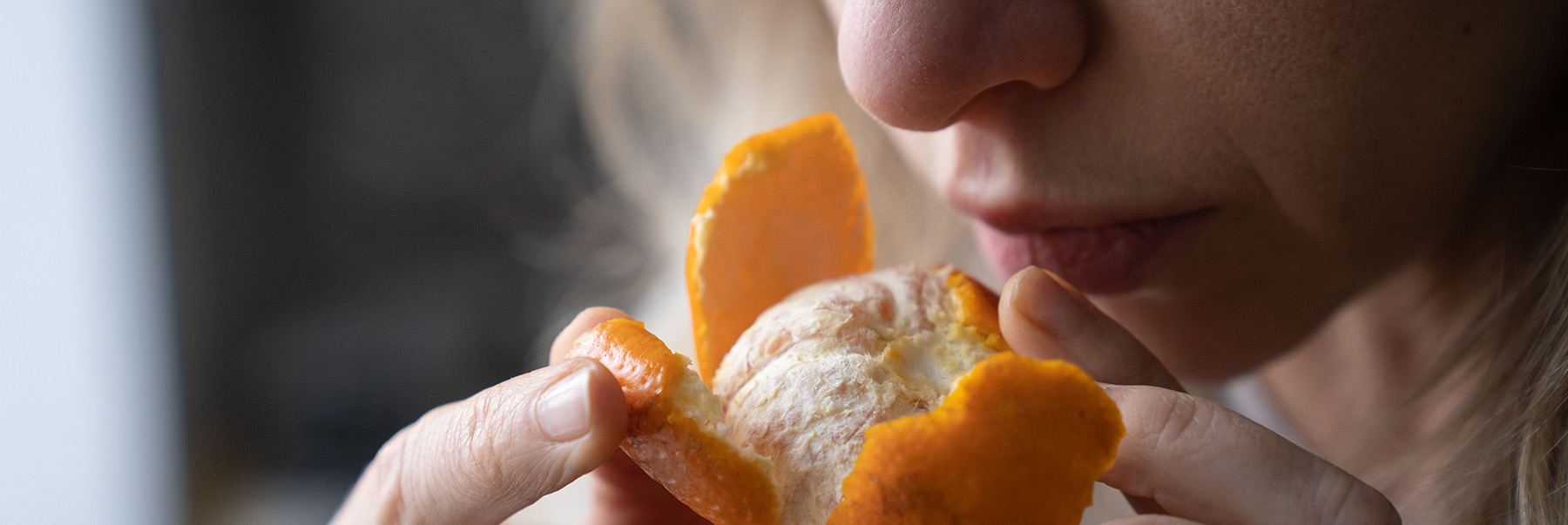Anosmia: The Impact of Losing Your Sense of Smell

Anosmia is the medical term for the complete loss of smell. And it’s more common than many people realize.
According to the journal Chemical Senses, anywhere from 3 to 20% of people live with anosmia or hyposmia or partial smell loss.
The medical symptom has gained more attention of late due to its association with COVID-19 infection. “Most studies describe somewhere between one-third to two-thirds of COVID-19 patients having some type of smell and taste loss as an early symptom,” says Corinna G. Levine, M.D., a rhinologist and surgeon at the University of Miami Health System. “Recovery appears to happen over the next couple weeks to months. Most people have complete recovery, but a small subset of patients never appear to recover their smell or taste.
While COVID-19 is the primary reason that anosmia has been in the news, the symptom is also linked to many other medical conditions. According to the National Institutes of Health, anosmia can occur due to allergies, infections, structural blockages of the nose such as polyps or tumors, some medications, and head trauma to name a few.
What is it like to lose your sense of smell?
In some cases, anosmia will resolve on its own over time or with the treatment of the underlying condition. However, other instances of anosmia can be permanent, which can cause many other complications for people living with the condition.
“With smell loss, people often have some degree of taste loss, as well,” says Dr. Levine. “A number of people can’t enjoy the foods they used to enjoy, or to the degree, they enjoyed them before. This sometimes leads to weight loss or lack of interest in food. On the other end of the spectrum, some people overeat, hoping to taste something again.”
As you might imagine, this can lead to a variety of other life complications for affected individuals. For example, Dr. Levine says that people might be less aware of potential smell-related dangers than they were before, such as smoke, spoiled food, hazardous fumes, and more. “There can be a major quality of life component with anosmia,” says Dr. Levine. “It may not be as pleasurable to go out to eat as it was before. Some research has shown that up to 40 percent of people with lifelong anosmia also develop depression.”
You can live with anosmia.
Even if anosmia is permanent, there are still several steps that people can take to cope with the condition. The National Institutes of Health suggests eating more flavorful foods to enhance taste, improving safety at home with smoke detectors or electric appliances instead of gas, and checking expiration dates on food or labeling them to prevent eating spoiled items.
Quality of life concerns can be more challenging for people, but Dr. Levine encourages her patients to focus on other things that they like. For example, people can still enjoy travel, exercise, music, and many other passions with a limited or absent sense of smell.
“This can be really difficult for people who are passionate about food, but I encourage them to try to find other things that they are passionate about and can continue to enjoy,” she says.
If you need additional help, book an appointment with an ENT specialist at the University of Miami Health System.
Wyatt Myers is a contributing writer for UMiami Health News.
Tags: covid-19 in Miami, Dr. Corinna G. Levine, rhinology, sense of smell
